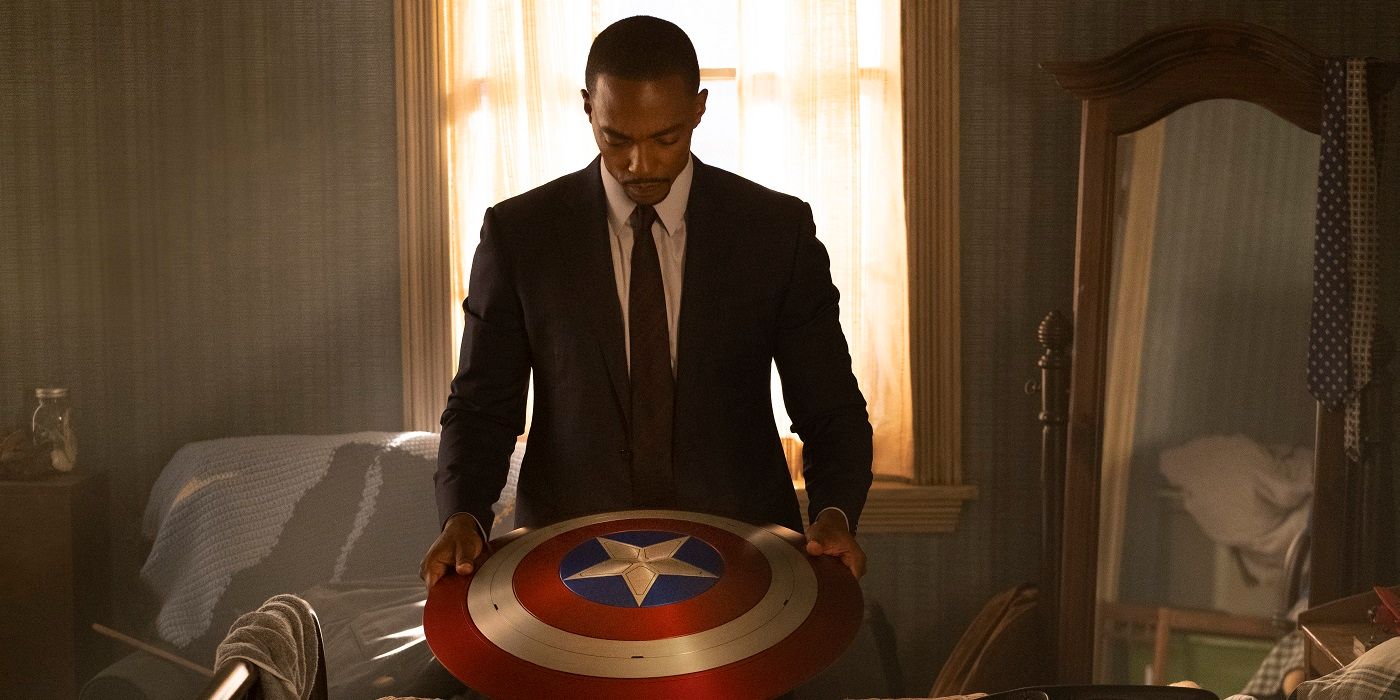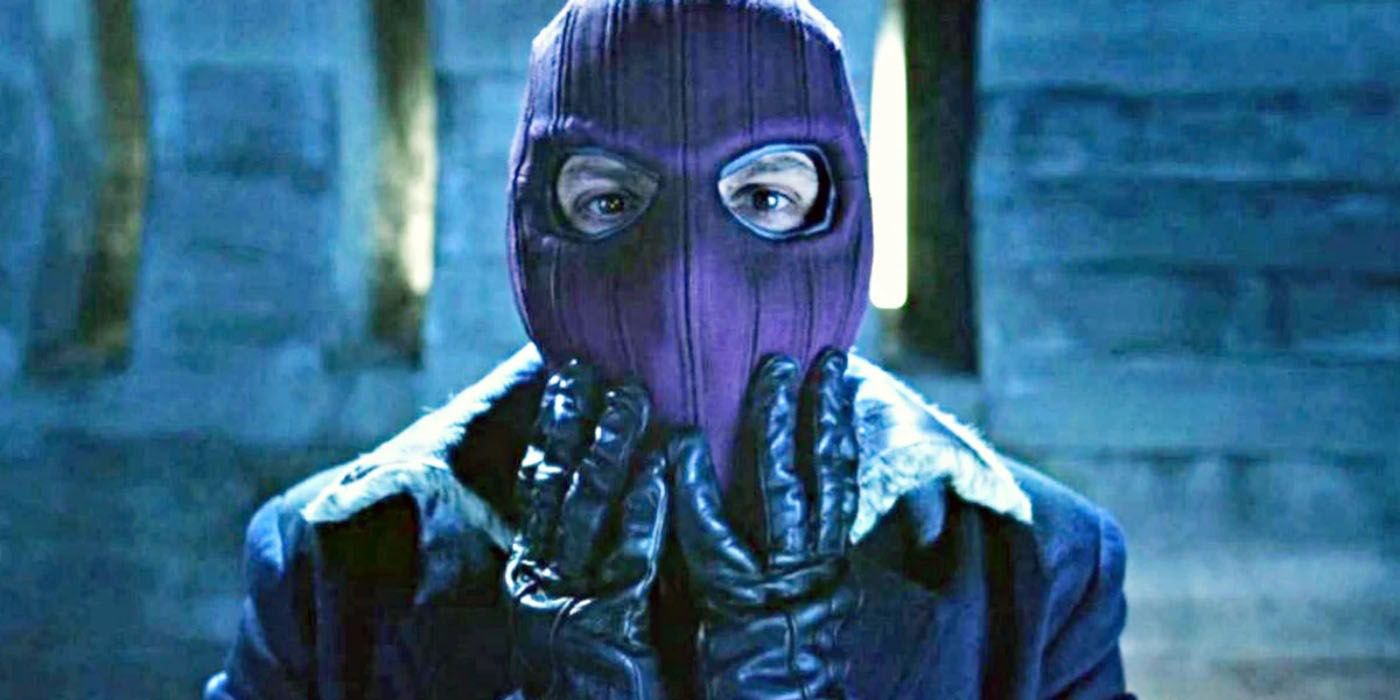The Falcon and The Winter Soldier replaces WandaVision in what might be termed the MCU slot of Disney+ this week, and fans could not be more excited. Questions abound like whether Sam Wilson will become the definitive Captain America or how Baron Zemo will work his way back in, yet few answers have been provided thus far.
Showrunner Malcolm Spellman spoke to Screen Rant about some of the themes and inspirations for the miniseries, as well as what unexpected events and characters might be in store.
Is it easier or harder for you going into a project like this where the lead characters have so much history already laid out in the past movies?
Malcolm Spellman: It’s a lot of work but it’s better. It’s not about easy or hard. It’s better that you get to have a dialogue with Anthony (Mackie) and Sebastian (Stan), as much as you think you know about them, as much as you read those books, they have to write the backstories for those characters for them to show up to work every day and be real on camera, so I've got to dig into their tool chest also and create them. So, I'd say it's better, but definitely not easier.
The Sokovia Accords have had a great impact on the MCU characters post-Infinity saga. That impact has been kind of understated: Peter Parker was seemingly unaffected by this until the end of Spider-Man: Far From Home, and even Wanda Maximoff played nice with SWORD when she could have just taken Vision's body. Will you have a subtle callback to The Sokovia Accords and how they affect Sam and Bucky and even Sharon in the story?
Malcolm Spellman: Yeah, I don't know what you read, man. But yes, absolutely. Wait, I don't know if I should have said that. That'll be it. No more, no more. That'll be it.
Can we get an overview of how Sam, Bucky and Sharon are coping post-Blip?
Malcom Spellman: The Blip defines everything in the series. We are close enough to what happened that half the world's population appearing and sending the world into chaos is what every villain is responding to, which means that's what every hero is responding to.
But on top of that, each of the characters you named has been given a personal storyline that's completely separate from the A-story, from the action and stopping the baddies, that has been directly affected by the Blip. What we wanted to do was really put these characters through a cauldron, so that by the end of the season, they're almost all being reborn as new versions of themselves.
In the real world, there's frequently of erasure of Black participation in the military. The Kneeling controversy pitted that against the military and the flag. However, the truth is that black people have been fighting and dying in American wars for centuries. This show has prominent black military leaders, like Sam and Rhodey. What kind of opportunity do you have to explore the notion of black military sacrifice, and how do you layer that into the subtext?
Malcolm Spellman: You are dialed in, and I cannot wait for you to watch the series because it is dealt with directly and in what we feel is a very honest way. I don't want to provide spoilers, but Sam would have never let us back away. I showed up not to back away, and it is a big part of Sam's journey. I cannot wait; you're gonna love it.
I'm a huge Marvel fan from way back in the day. Madripoor is a dream come true; it's a city that's synonymous with the Hand, the Yakuza, Wolverine and so many others. How did you decide to give this infamous location in Marvel mythology a character?
Malcolm Spellman: This is the magic of working at Marvel. As a creator, they put you in a bubble; they don't let you talk about any other projects. They pair you with a Marvel creative producer - in this case, I had two; I had Nate Moore and his partner Zoie [Nagelhout]. And you are told to create and do your best and make it the most human and real thing you can possibly.
And as you bump into things that might be affecting the Marvel Universe, they tap your hand and say yes or no, or guide you. You may write a scene where a guy's scooping ice cream for Sam and Bucky, and as the show evolves and as the Marvel Universe evolves, a month later you get a call from Kevin and Nate saying, "That guy scooping ice cream? He's now blank blank blank from the Marvel Universe."
So, Madripoor... We referenced this outlaw city that actually felt like Madripoor in real life. And as we are creating, a bunch of things are happening in the Marvel Universe, and all of a sudden that city becomes Matterport and everybody geeked out. Everybody flipped. They're like, "Oh my God. You know the ramifications of this?" The fans know, and the ones who don't will be finding out somewhere in the near future.
One of the best stories in Captain America's comic history was told without Captain America even being in it. It's called Truth: Red, White & Black. How much did that comic run inspire the show, and what other specific comic stories did you draw from while developing the series?
Malcolm Spellman: That's the main one. The audience probably won't see identical composites from the book, because it just changes once you go into the MCU. But the spirit of it is absolutely there. Like I said, you couldn't hide from it.
The show reintroduces us to one of the most underrated villains of all time, Zemo. He literally defeated the Avengers with no powers. How do you plan to expand the character?
Malcolm Spellman: Zemo crushed it. Daniel Brühl crushed that role. Zemo's involvement in this story - the same as Sharon, Sam and Bucky and even Walker - is that he is on a personal journey. What we wanted to do with this is: there's more than one antagonist in this series, and all of our antagonists believe their heroes. All of our antagonists believe it so much that they can present the argument in a way that even our heroes are like, "Damn. That's a good point."
Because this series is of the times. These heroes are dealing with things that me and you and our family members are dealing with. Zemo is basically dealing with the concept of supremacy, and the fact that he in his heart believes heroes are a bad idea. Look what happened to his country and his family because of that, you know what I'm saying? He gets to really unpack that and, more importantly, since you have six episodes, it's not a rush or a single line of dialogue this time. He gets to confront people about it.
Did you did you have any stories saved for a potential season 2, or is everything on the table right here in season 1?
Malcolm Spellman: I don't know, man, what you're talking about. That's Kevin Feige territory, brah.
Outside of Sam and Bucky, were there any new MCU characters that you were looking forward to developing?
Malcolm Spellman: Can't tell you, bro. But I promise you you're gonna find my number and call me when he appears. I got excited talking to you. I think this is my sloppiest interview with spoilers.
Malcolm I am extremely excited for what you have in store for us over the next six weeks. At the end of this series, will we have a definitive Captain America?
Malcolm Spellman: I cannot say that, but I hope you will tell the fans. Because everyone's making an assumption after Endgame that they think they know how the series begins, and I hope you will tell the fans it is not what they expect.
The Falcon and The Winter Soldier starts streaming March 19 on Disney+.








